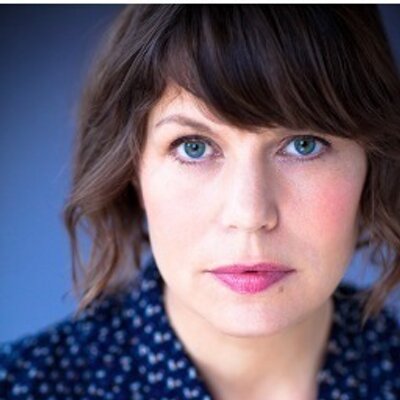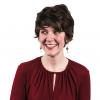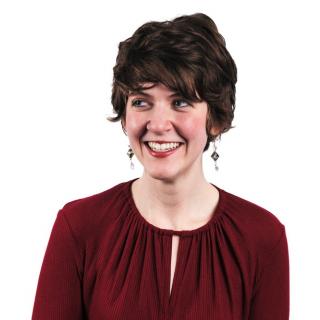
It’s easy (if inaccurate) to assume “young adult” is, quite literally, kids’ stuff; that as good as Harry Potter and The Fault in Our Stars may be, they’re not, you know, “real” literature. How wrong we are.
Author E. Lockhart’s work speaks for itself. Called at varying times “haunting” (The Wall Street Journal), “expertly timed comedy” (Booklist), and “blisteringly smart” (from The Fault in Our Stars author John Green), many of Lockhart’s national award-winning books are young adult fiction. They’re also very good stories.
Lockhart’s no stranger to Seattle; she grew up here, with fond memories of time on stage at Seattle Children’s Theatre — she performed under none other than distinguished artistic director emeritus Linda Hartzell — and calls her childhood acting “a huge part of my education as a literary person.” Other times as a Seattleite, “I was just a teenager running around, chasing boys.”
In that way Lockhart’s not unlike one of her more famous protagonists: Ruby Oliver. The star of the eponymous quartet, Ruby, at varying times in the series, lives on a houseboat (“always my fantasy living in Seattle”), works at the Woodland Park Zoo, and chills at B&O Espresso (still around, if uprooted from Capitol Hill to Ballard). “Nothing that happens in the books is from real life,” Lockhart notes, “but the settings and the flavor and the atmosphere is very much Seattle.”
While the Emerald City long ago lost Lockhart to the East Coast (Vassar, followed by Columbia, followed by adulthood), we’ll welcome her back Sunday, Sept. 18, for the kickoff Word Works lecture at local institution Hugo House followed the following day by a half-day class.
Don’t let that moniker “young adult” scare you off; Lockhart notes she’s also a commercial fiction writer, and her record shows she’s a good one. “I would just encourage people who are on the fence to come and give it a go,” she says. All you need, she notes, is to want to talk about writing.
We do just that in the questions that follow. Read on for Lockhart’s thoughts on bias against young adult fiction, whom she has in mind while writing, and finding her voice.
Do you encounter any bias against young adult novels?
Less and less. I think that more and more people are thinking of young adult as a genre category that centers around a very interesting time of life when you come of age [and] separate from your family of origin.
There are also some conventions of young adult novels such as frequent use of first person, they tend to be on the shorter side, … and characters fairly rarely grow to adulthood … Those are conventions [but] mystery novels have conventions, sci-fi novels have conventions, fantasy novels have conventions.
We make a great error in underestimating the intellectual and emotional capacity of our youth.
There are always exceptions to those conventions but readers choose to read in a particular genre because they enjoy that genre. There’s always going to be a murder or a crime in a mystery novel and there’s always going to be someone coming of age and transitioning into what it means to be an adult in a young adult novel.
What do you say to criticism about including ‘adult’ topics like sex, drugs, and death in young adult books?
I think we make a great error in underestimating the intellectual and emotional capacity of our youth. I think that literature is one of the safest and most expansive ways to experience the world beyond our own life experience, and that for children, reading about life experience beyond their own builds empathy and deepens their understanding of the life that is to come. I do not think we should infantilize them by limiting what they can read about.
I think people who want to censor the readership of young people are often well-intentioned — what they want to do is protect their children — but in trying to prevent their children from reading about certain topics they send a message that those topics are unspeakable. They tell their children that if they encounter such difficulties in real life such as PTSD or sexual situations or drug use or violence, ‘Don’t come to me because I don’t want you to know about any of that and I refuse to speak of it.’ Closing those doors, which some people who are very well-intentioned do, is a big mistake in my carefully studied opinion.
Do you ever have a particular reader in mind while writing?
No, I’m just trying to write a good story. Like any writer, I’m trying to express the inside of my head.
The title of your Word Works talk is “In Praise of Style: Artifice, Punctuation, and Other Rogue Techniques of World-Building.” What in your mind qualifies as a ‘rogue’ technique?
Insane punctuation. Hitting “return” in the middle of sentences. Using all caps and using illegitimate grammar and things of that nature.
I’m a very voice-y writer and my writing style, I guess it’s recognizable but it does change from book to book as the identity of my protagonists change, their social class, their regional and religious affiliations and so on change. So I’m lecturing in praise of style, in praise of experimenting, at the very least, with aggressively stylized writing.
What lessons do you hope people leave your lecture and class with?
I hope they feel empowered to play around with voice and style in some maybe fresh ways that they haven’t done before.
Early career writers don’t always realize how unique their own minds and voices are, and instead try to execute a number of techniques that they have been taught and in executing them might lose track of their own voice. I did this. The way I learned to write was trying to sound like other people, but eventually I came around to trying to sound like the inside of my own head.
An early part of a lot of people’s writing journey, as it was for me, is trying to sound like John Irving, trying to sound like Joan Didion, trying to sound like someone you admire. That’s a nice exercise too but the question is how do you move past that and listen to the sound of your own voice?











